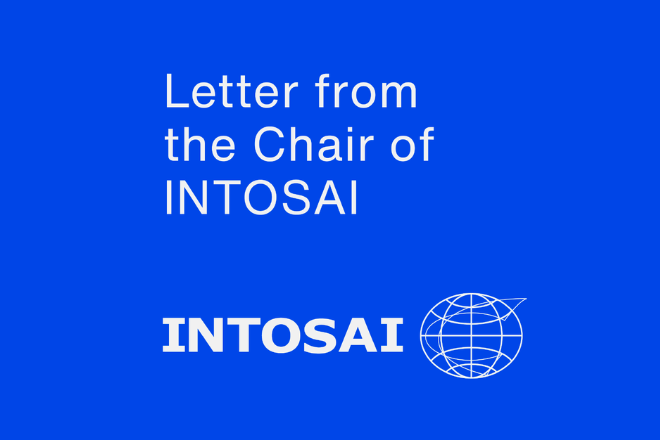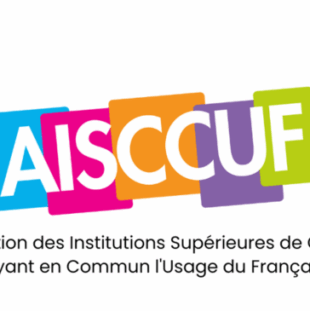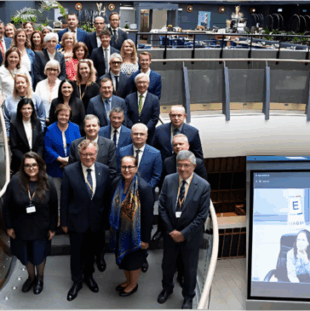The Supreme Audit Institutions in the Fight against the Climate Crisis: ClimateScanner, a Global Initiative of INTOSAI

The chair of the International Organization of Supreme Audit Institutions (INTOSAI), Minister Bruno Dantas, in his November 2023 open letter, shares how INTOSAI contributes to the fight against the climate crisis.

Global warming and the ongoing climate changes in the world are undoubtedly the most pressing challenge of our time. They are universal, long-term issues that encompass environmental, economic, political, and social aspects, with significant implications that transcend borders, impacting all nations. In this sense, it demands a consistent and unified worldwide response that goes beyond political ideologies and individual interests. It addresses not only the survival of a nation or a generation but also the very existence of the human species.
As the Secretary-General of the United Nations, António Guterres, noted in the opening ceremony of the 27th Conference of the Parties to the United Nations Framework Convention on Climate Change (COP27), “We are in the fight of our lives. And we are losing.” In this context, it is our responsibility, for the sake of future generations, to face this challenge using all available resources. As audit institutions, we possess the competence, experience, and necessary means to effectively address this catastrophic scenario.
Supreme Audit Institutions (SAIs) play a unique and crucial role in addressing this global problem. Their prerogative to make recommendations to national governments, as well as their independence and technical authority, make them relevant catalysts for change. Our institutions provide reliable information and actively promote good governance standards, oversee public expenditures, enhance government transparency, and improve public policies.
In recent decades, the international community has made various commitments to combat climate change, including the United Nations Framework Convention on Climate Change, the Kyoto Protocol, the Paris Agreement, and the Sustainable Development Goal 13 of the 2030 Agenda. However, despite these commitments being essential pillars of global environmental governance, their implementation faces significant obstacles due to the lack of reliable data, methodological conflicts, and conceptual complexities.
It is in this context that the ClimateScanner was created, an innovative project resulting from the partnership between the Brazilian Federal Court of Accounts (TCU), as President of the International Organization of Supreme Audit Institutions (INTOSAI), and the INTOSAI Working Group on Environmental Auditing (WGEA). This pioneering initiative aims to develop a rapid assessment tool, specifically designed to evaluate the actions taken by national governments regarding the climate change, which are directly linked to the mentioned global agreements.
The tool is being structured around three thematic areas: financing, governance, and public policies. Through standardized assessments conducted by each SAI in its respective country, the project will provide a comprehensive overview of government actions in addressing climate issues at the national and global levels. This information will help identify the main challenges faced by governments in relation to climate change as well as their strengths. The resulting analysis will guide the strategic allocation of public efforts and resources to the most critical areas, helping improve public policy formulation. Furthermore, it will enable SAIs to identify sectors that require more in-depth analyses in their respective countries.
The ClimateScanner will provide information in an accessible way, using clear language and visual resources. This approach not only enhances communication effectiveness but also ensures that information is understandable to different audiences, including civil society.
The assessment methodology has been developed throughout 2023 by an executive group coordinated by the TCU (SAI Brazil) and composed by SAIs from Canada, Chile, Colombia, the United Arab Emirates, Slovakia, the United States, the Philippines, Finland, India, Indonesia, the Maldives, Morocco, New Zealand, Kenya, the United Kingdom, and Thailand, as well as the European Court of Auditors. The project also enjoys technical and financial support from relevant global institutions such as the United Nations Department of Economic and Social Affairs (UNDESA), the United Nations Development Programme (UNDP), the Inter-American Development Bank (IDB), and the World Bank. The methodology, currently in its final stages, will be presented to the international community at the Conference of the Parties on Climate Change (COP28) to take place in Dubai later this year.
The tool will begin to be implemented in 2024. To ensure comprehensive and robust results, it is crucial that as many supreme audit institutions as possible actively participate in this endeavor. We will provide training for SAIs joining the project, equipping them to use the tool.
I call on supreme audit institutions to wholeheartedly embrace this initiative, incorporating it into their plans for the coming year and allocating the necessary resources for its implementation. To promote engagement and solidify commitment to using the ClimateScanner, their leaders will be invited to a Global Call at the United Nations Headquarters in March 2024.
ClimateScanner enhances INTOSAI’s Global Voice. It is a unique opportunity to influence global climate policies, contributing to a more transparent, responsible, and sustainable world. The time is now, the resources are at our disposal, and the call is for collective action in support of our planet.






